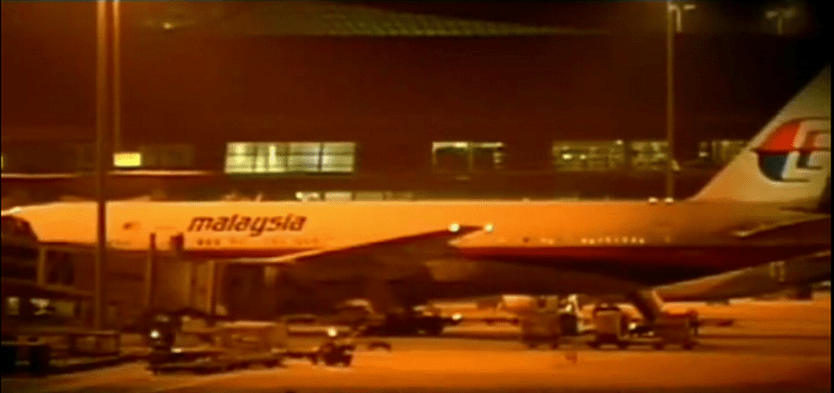The legal proceedings concerning the tragedy of Malaysia Airlines Flight MH370 were heard at the People's Court of Chaoyang District, Beijing, on November 27, 2023. It was revealed that out of 154 Chinese passengers' families, over 40 families had filed lawsuits, while the remaining 110+ families had reached settlements with the defendants and signed agreements.

There were five defendants in this case: Malaysia Airlines, also known as Old Malaysia Airlines; Malaysia Airlines International Limited, also known as New Malaysia Airlines; Boeing Company of the United States; aircraft engine manufacturer Rolls-Royce of the United Kingdom; and Allianz Insurance Group of Germany. The litigation requests of the over 40 passenger families varied but mainly focused on two aspects: seeking the truth behind the MH370 flight's disappearance through the trial and addressing compensation issues.
This article delves into the chronology of the Malaysia Airlines incident and the relationships between the parties involved to analyze the legal issues in the passenger families' compensation lawsuits from the perspective of private international law, focusing on jurisdiction, applicable law, and recognition and enforcement of judgments.
1. Event Recap: On March 8, 2014, Malaysia Airlines Flight MH370, a Boeing 777-200 aircraft carrying 227 passengers and 12 crew members, including 154 Chinese passengers (153 mainland residents), departed from Kuala Lumpur International Airport bound for Beijing. Shortly after takeoff, the flight lost contact with air traffic control at the boundary between Malaysian Kuala Lumpur Air Traffic Control Zone and Vietnamese Ho Chi Minh City Air Traffic Control Zone. On March 24, Malaysian Prime Minister Najib Razak announced that the aircraft had disappeared in the southern Indian Ocean.
Following the Malaysia Airlines incident, multinational joint search and rescue operations were conducted in the South China Sea, the Strait of Malacca, and related land areas. On July 29, 2015, debris resembling a wing, about two meters long, was found on a beach in French-owned Reunion Island in the Indian Ocean. On August 6, Malaysian Prime Minister Najib Razak, at a press conference in Kuala Lumpur, confirmed that the debris belonged to Malaysia Airlines Flight MH370, indicating that the aircraft tragically met its end in the southern Indian Ocean.
2. Jurisdictional Issues: The Warsaw Convention of 1929 established specific rules for compensation in aviation carrier liability for passenger injury, death, or cargo damage. The Convention's Article 28 lists four mandatory jurisdictions for international air tort disputes: the court of the carrier's domicile, the court of its principal place of business, the court of the place where it has a business establishment, and the court of the destination. The Montreal Convention of 1999 introduced the "fifth jurisdiction," granting jurisdiction to the court of the passenger's domicile or permanent residence for international air tort cases. China, being a signatory to both the Warsaw and Montreal Conventions, has jurisdiction over the MH370 compensation case.
Regarding jurisdictional hierarchy, as a significant international case, it should be under the jurisdiction of an intermediate court, which implies that the Chaoyang District People's Court, being a grassroots court, should handle the case with the Supreme People's Court designating jurisdiction, leaving room for both parties to appeal or apply for a retrial.
3. Applicable Law Issues: International transportation compensation matters are primarily resolved through international conventions and relevant domestic laws. China, Malaysia, the United States, and Germany are parties to the Montreal Convention. Hence, the Montreal Convention should govern the MH370 passenger families' compensation case, with specific litigation procedures and compensation amounts subject to the laws of the jurisdiction where the lawsuit is filed.
The Montreal Convention introduced the concept of unlimited liability for passenger bodily injury or death compensation within a specified limit, beyond which the carrier assumes fault-based liability. As for baggage compensation, the Convention differentiates between checked and unchecked baggage, with carriers assuming no-fault liability for checked baggage losses occurring on the aircraft unless caused by the baggage's inherent defect, quality, or flaw. For unchecked baggage, carriers bear fault-based liability, only accountable for losses caused by themselves, their employees, or agents' faults.
Additionally, if investigations reveal a direct connection between the aircraft's technical defects and the crash, compensation from Boeing Company would be governed by U.S. domestic laws such as the General Aviation Revitalization Act and state product liability laws. Boeing's compensation would be additional to Malaysia Airlines' primary compensation responsibility.
In conclusion, the legal complexities surrounding the Malaysia Airlines Flight MH370 compensation case involve intricate jurisdictional, legal, and procedural considerations under international conventions and domestic laws, necessitating a comprehensive analysis to ensure fair and just outcomes for the involved parties.


© Beijing JAVY Law Firm Beijing ICP Registration No. 18018264-1